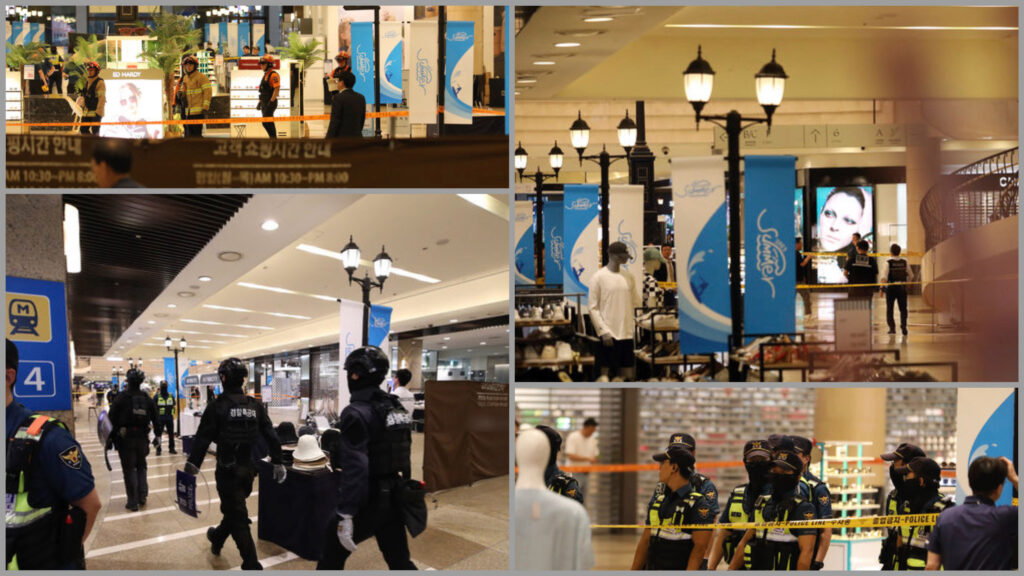
Recently, a series of “knife attacks” have been reported, raising concerns about online “as dangerous as the United States.”However, experts argue that “half of the OECD is safe.”Police are controlling the scene of the incident on the 3rd, when an indiscriminate vehicle shock and a knife disturbance occurred at Seohyeon Station in Bundang-gu, Seongnam. Thirteen people were injured in the incident. Recently, there have been a series of “don’t ask” crimes targeting an unspecified number of people in Korea, highlighting this. “Don’t ask me why. South Korea is suffering from a series of “Don’t Ask” stabbings, according to an article titled “Korea is suffering from a series of knife attacks” that occurred at Sillim Station in Seoul and Seohyeon Station in Seongnam. “Don’t Ask” is written as “Mudjima,” which translates the Korean pronunciation into Roman letters.In South Korea, where the rate of violent crimes is known to be low, citizens are anxious about a series of knife rampage crimes.The term “don’t ask” has long been used in Korean society, but the police officially defined it as a “abnormal motive crime” and set up a response TF only in 2022, BBC reported.He pointed out that Korea’s violent crime rate hit the lowest in 10 years last year, but this recent knife rampage has given people the perception that society is more dangerous.Some online say that Korea is now as dangerous as the United States, but experts told the BBC that Korea is still a very safe country. Korea’s murder rate is 1.3 per 100,000 people, half of the average of OECD member countries, and less than one-fifth of the U.S. murder rate. “The rate of murder and other violent crimes in Korea is not only very low compared to other countries, but has also decreased steadily over the past decade,” he said.Experts pointed to fundamental social pressures in Korean society, including unstable job prospects, continued stigma around housing and mental health, and a lack of support services. Professor Song said, “I think there is a need for a social support system or policy that can help people who are fundamentally disconnected from society and have no social ties.” It was also said that after the knife rampage, there were a series of murder notices online stating the specific time and place, making the public more anxious. As a result, a list of announced felonies and a site informing them of their arrest appeared, and the police arrested those who posted them, while strengthening public patrols, he added.
EJ SONG
US ASIA JOURNAL

